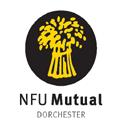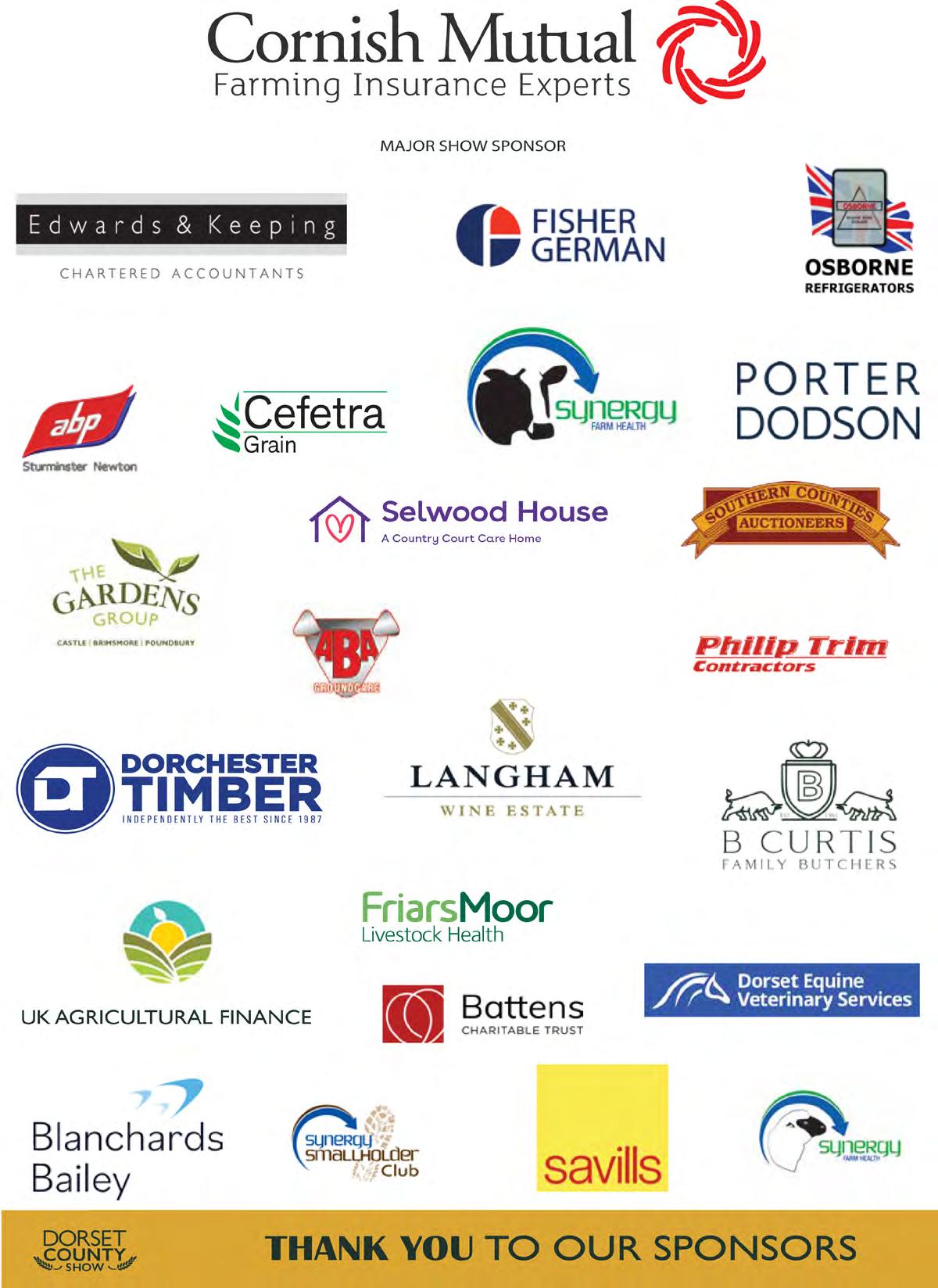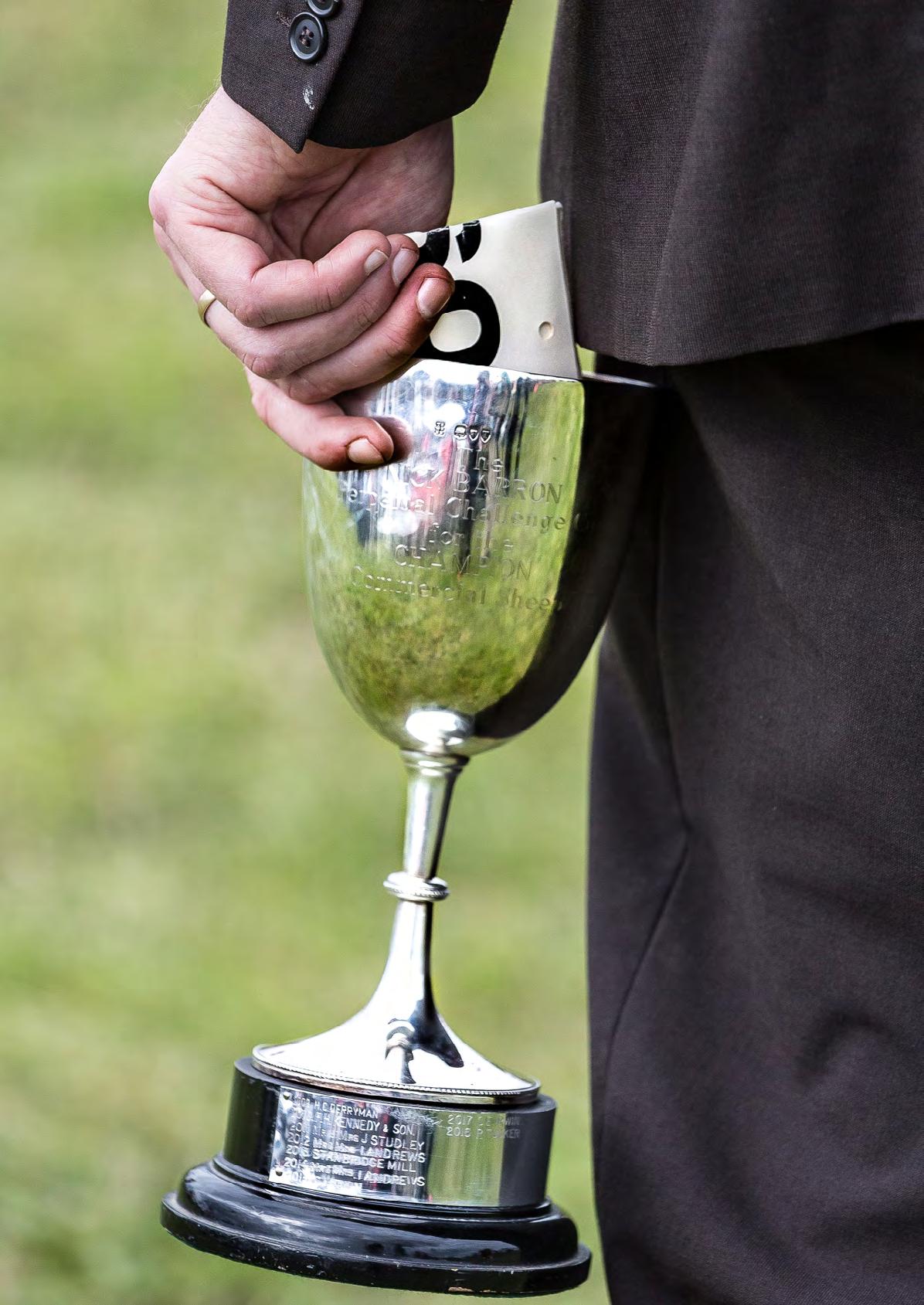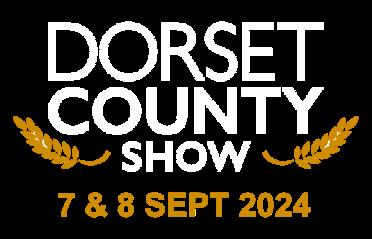2 & 3 SEPT 2023







As they prepare to rev into the main ring, Tracie Beardsley caught up with the man behind the enormous wheels of the world’s biggest monster trucks – Michael Murty

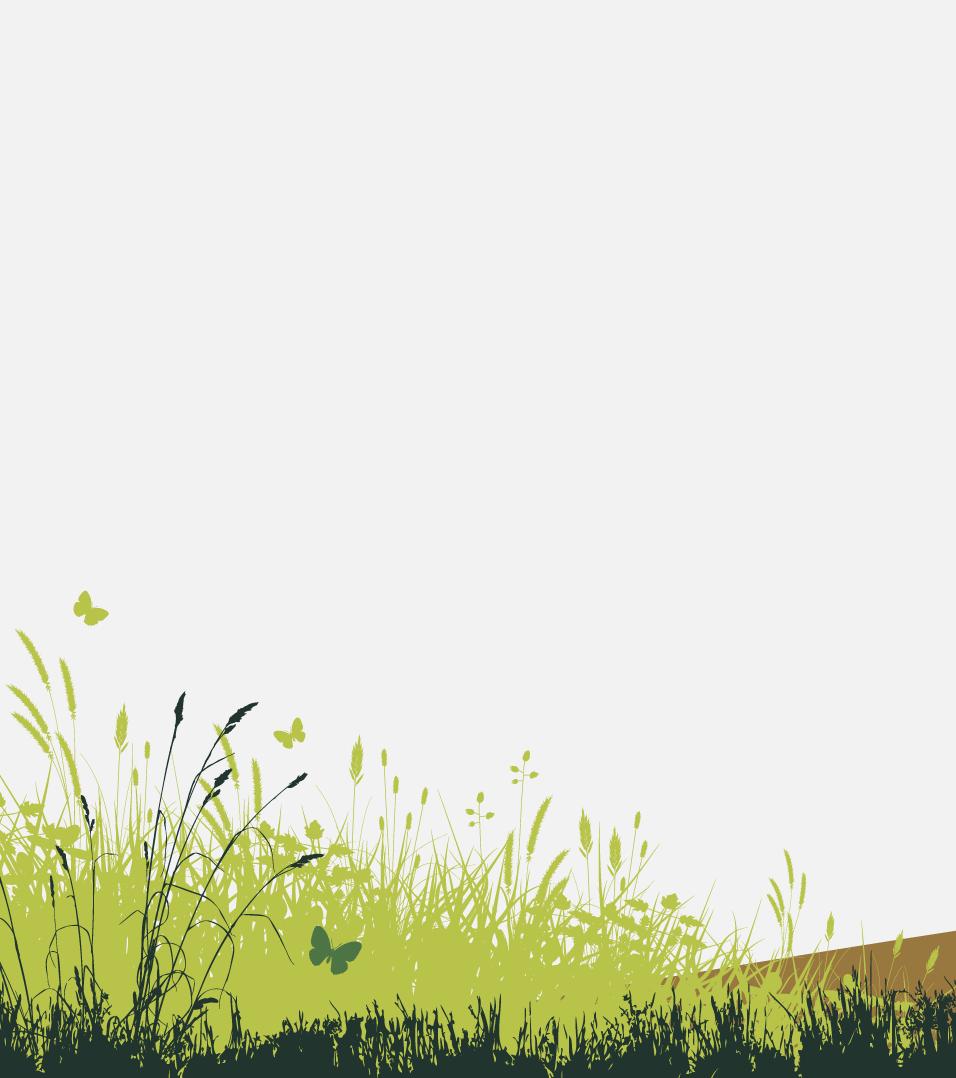
Brilliant and unmissable, The Sheep Show hilariously highlights the importance of wool and the truth about sheep farming ... while debunking certain sheep-related myths.
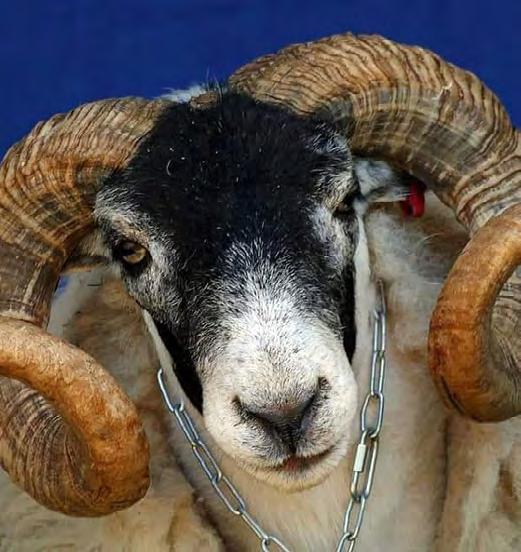
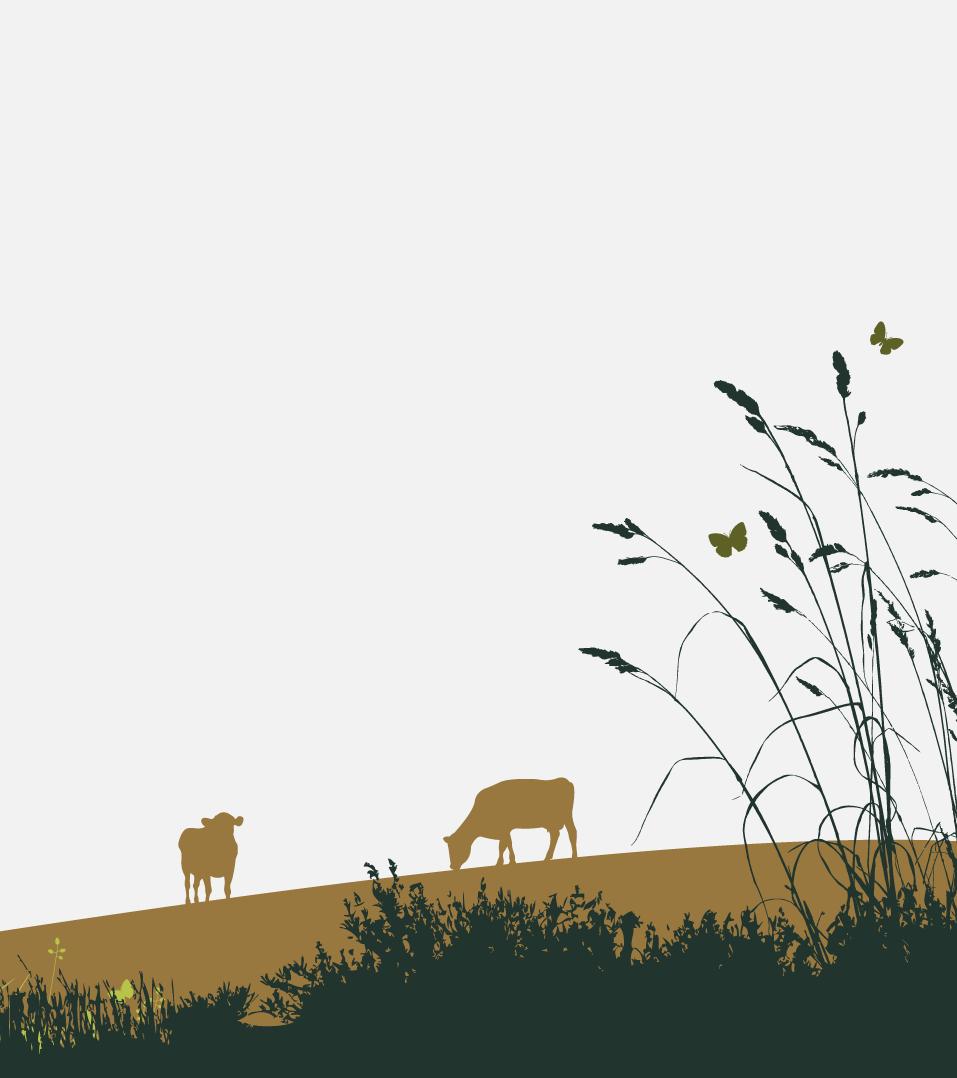
With a super-sized new Food Hall and more than 100 producers, we’re thinking that this might be the best place in the county to find a bite to eat Food

Ready ...
Get set to cheer your favourite team as the Pony Club Mounted Games gallops into the Dorset County Showground for the first time
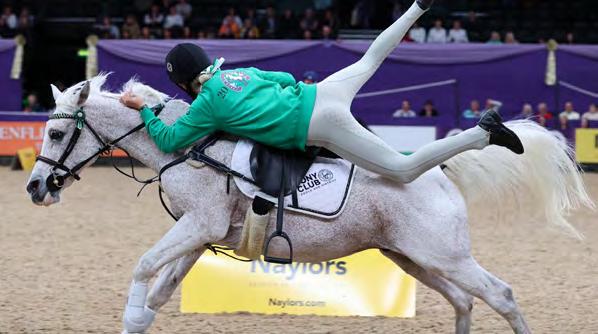
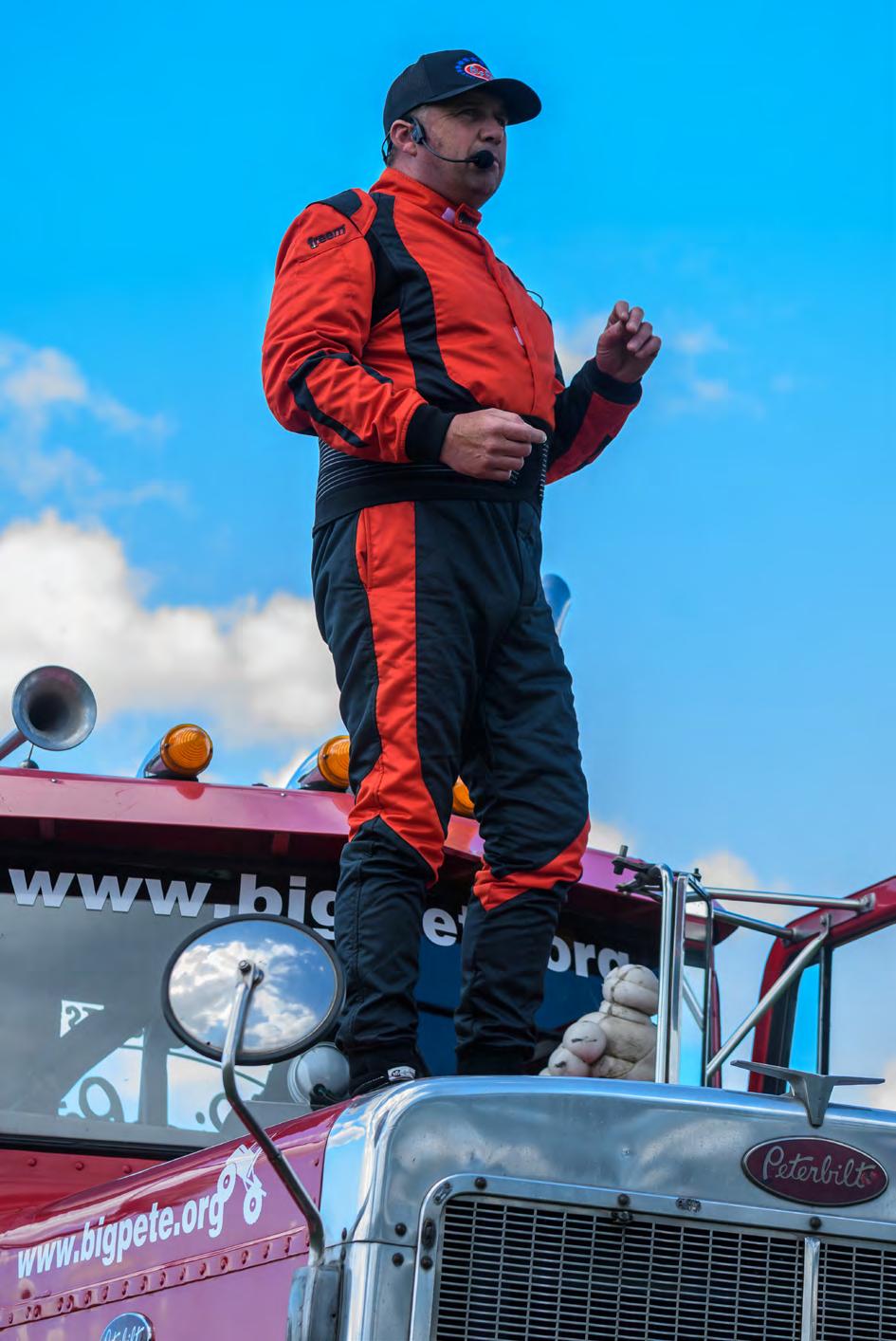

I grew up in a family of motorsport fanatics – motorbike stunt riders and drag racers. My father and my brother both did it – it’s a family thing and very much in our blood.
It originates from America –heavily modified trucks were popular during the 1970s and were used in the sports of mud bogging and tractor pulling.
Bob Chandler was the man behind the original. He was the first to
put huge tyres on a truck and build what is considered the first ever monster truck – Big Foot. He started a worldwide phenomenon along with Jasmer Everett, who created another famous monster truck, USA-1. Now, monster trucks as we know them entertain at shows around the world! The tours culminate in the incredible Monster Jam World Finals.
Where do your Monster Trucks come from?
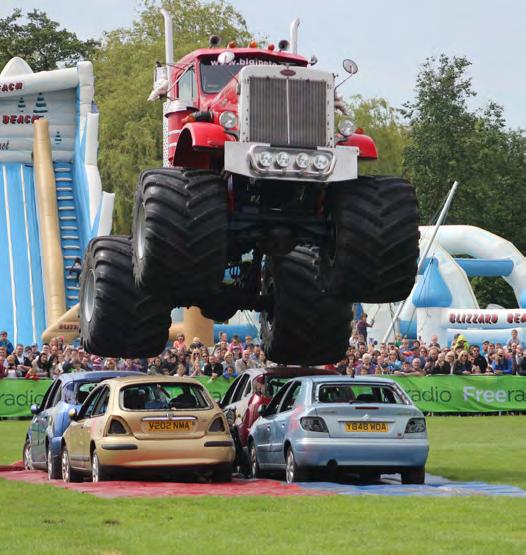
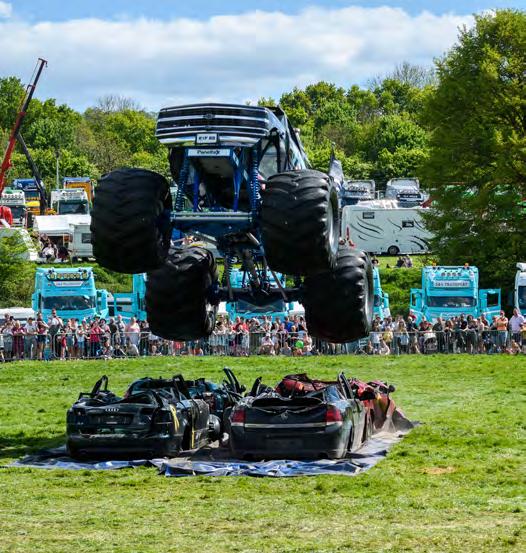
Big Pete and Grim Reaper both started out life in the USA, but they are both completely my own creations – they're a hybrid of USA and UK engineering that I’ve rebuilt and rebranded.
The work is never finished – owning monster trucks is very much a labour of love! I’ve owned five in total over the years, but these two are adapted perfectly for green field entertainment in the UK.
I always joke and say Grim Reaper is named after one of my ex-girlfriends! It’s actually a nod to one of the most famous monster trucks of all time and our personal favourite – Grave Digger. The red one, Big Pete, is a unique monster truck. It's based on the type of truck built by the famous American Peterbilt Motors Company. They started life in the 1930s and are still making trucks today.
When did you start driving Monster Trucks?
I’ve been in this business for 20 years and am proud to be one of the most experienced monster truck drivers in the UK.
I actually started driving when I was about six years old – in a 10-tonne tipper truck which I drove on a disused airfield where my dad used to practice drag racing. I did pass my test first time when I was 17!
Cars, vans, lorries – I think I’ve driven most forms of vehicle and, with travelling all over Europe, probably slept in most too!
What’s it really like being behind the wheel of a Monster Truck?
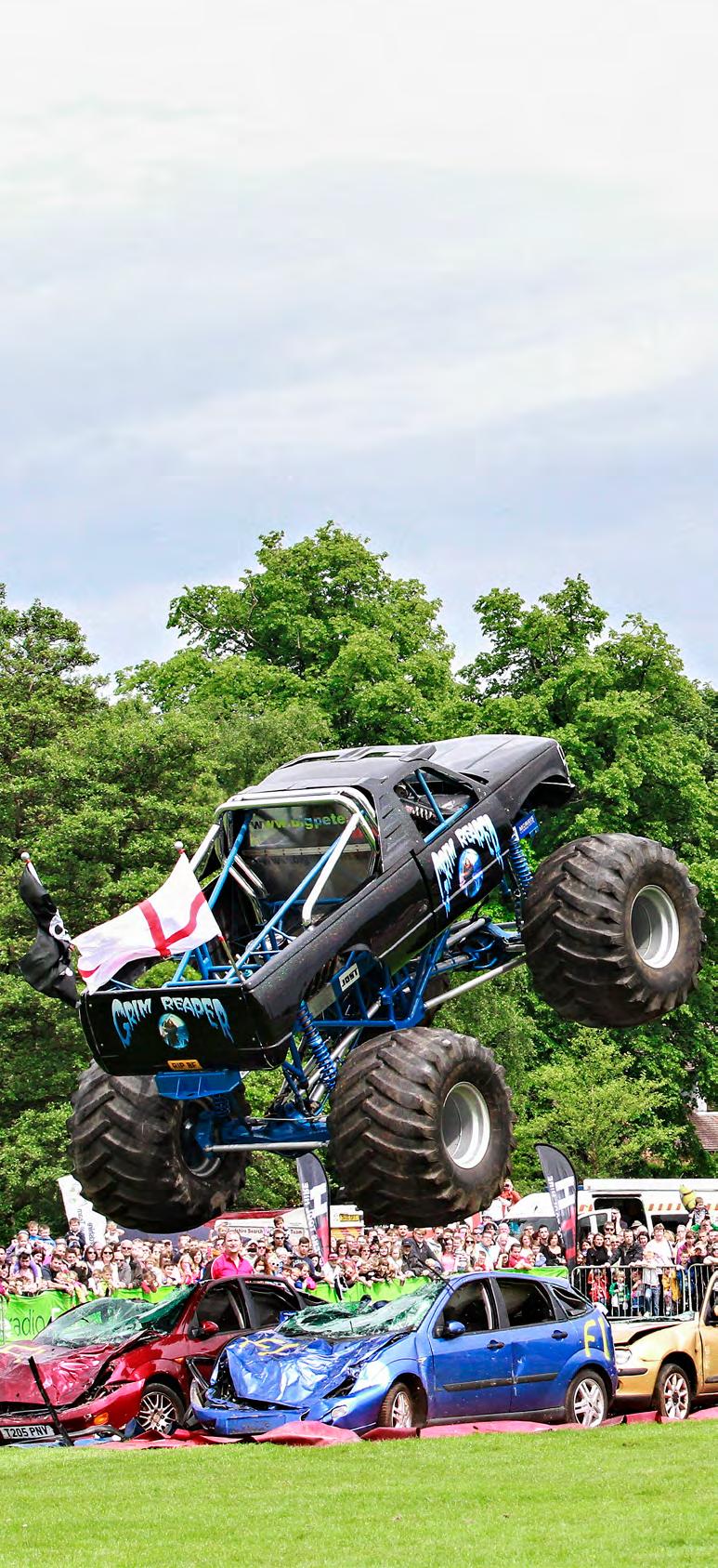
It’s loud. And it's intense. An assault on your senses. And the visibility is limited.
It’s also very uncomfortable! The suspension has to be extremely hard because the truck is so heavy. To be honest, I could do with a long, hot bath after every show and a deep tissue sports massage, but we stay in caravans for six months of the year while we’re touring – so all I’ve got is a small shower!


With a super-sized new Food Hall and more than 100 producers, we’re thinking: ‘Yes, yes, it is!’
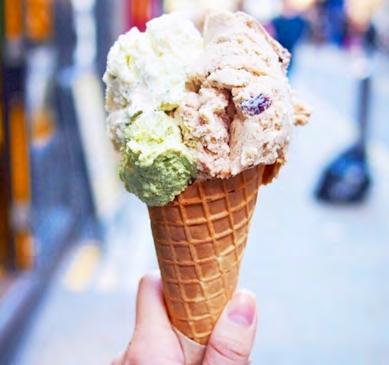
We're so excited. This year’s show has a huge new Food Hall. And when we say huge ... it stretches for 60 metres! The foodie paradise showcases the best of British food and drink producers, with a particular focus on those from Dorset. From brownies to beer, pickles to pork, cider to sourdough, English wines, local gins, cheese, olives and more, the massive marquee provides a taste-tempting experience. And of course there are tasty samples – so you can try before you buy!

Justin Langham from Langham Wine Estate near Dorchester – one of the show's sponsors – says: 'Dorset’s farming community is rightly proud of its produce. The new Food Hall at this year’s show is an exciting opportunity for us to celebrate the world-class food and drink we make here. We’re delighted to be a part of it.'
Show organiser James Cox says: 'Our county is bursting with wonderful food and drink producers – we’re delighted to bring together more than 100 of them, ranging from small producers who are just starting out to well-established, international award-winning names. We love putting visitors and producers together.'
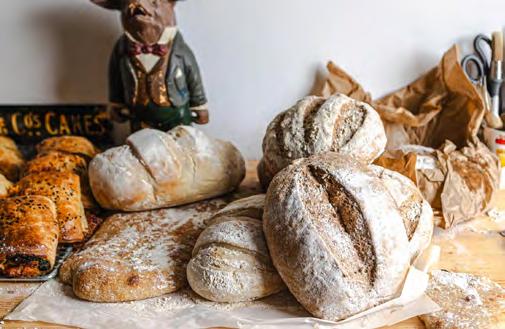
The new Food Hall sits alongside a new Food & Drink Area, sending mouthwatering smells of delicious hot and cold treats. From Dorset burgers to local doughnuts, this new area welcomes local producers selling both food and condiments for you to enjoy on site and take home to use in your own kitchen. James Cox says: ‘The new area has a festival vibe, with colourful flags and live music. Enjoy a pitstop for a cool local cider or a Dorset ploughman’s picnic.' The area also has outside pitches for market traders as well as picnic marquees.

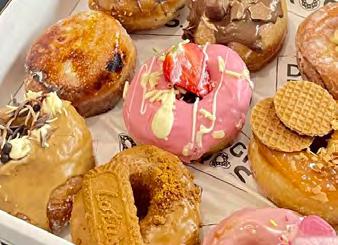
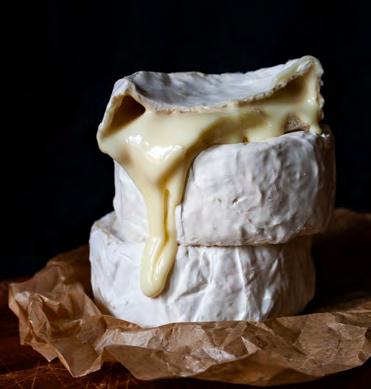
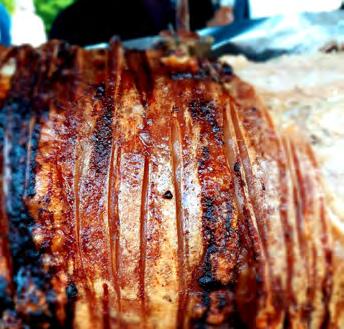
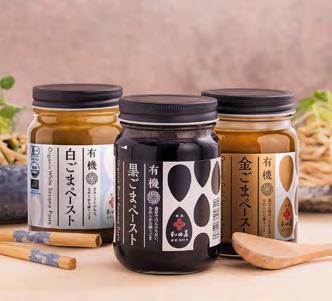

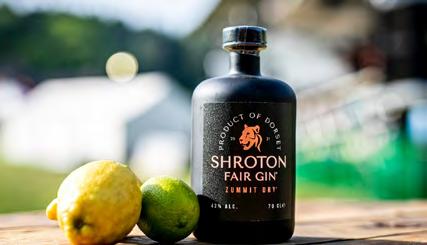
Brilliant and unmissable, The Sheep Show hilariously highlights the importance of wool and the truth about sheep farming ... while debunking certain sheep-related myths.
 by Rachael Rowe
by Rachael Rowe
Trevor Wayborn paced the stage on a cold, windy, damp morning when the early crowd had begun to have second thoughts about coming to a spring agricultural show. But there was something about The Sheep Show that brightened a dull day and put a smile on everyone’s face. The laughter, the engagement – even the education – that came from the performance was an absolute tonic. And we've not even mentioned the sheep. By the time he had finished, even the sun was shining!

Trevor is based in North Devon with his family (and sheep) – but every year he heads out on the agricultural show circuit with The Sheep Show. 'I’ve always been in farming. My parents were farmers, but they had to come out of it before I was old enough join them. When I left home I joined the ambulance service and became a paramedic, but I always kept sheep alongside the day job and also did contract shearing. In 2013 I left the ambulance service – the same year I saw Richard Savory with his Sheep Show at Devon County Show. I chatted to him and thought to myself: "I’d love to be involved with that".
'It just all came together really. I have experience in the theatre and in sheep shearing. So I worked with him to see what I could do and started doing my own shows in 2015. Richard had been running The Sheep Show for 30 years at that point, and I was in awe of the way he worked. I took over the business in 2022 and that’s where I am now. It's a family affair too – my wife and daughter are also involved.' No-one watching The Sheep Show can fail to notice some stand-out performers in the team – look especially for Lenny and Belinda among the native British breeds. 'There's not a special thing we look for in the sheep. All the breeds we use are chosen because they tell a story – but we do try to get them early in their lives. Then they get used to food. We don’t get them too tame and we just look for that little bit of something to work on. 'I don’t want to give away too many trade secrets! Once we’re on stage we just work around them. We don’t train them – actually they train us!
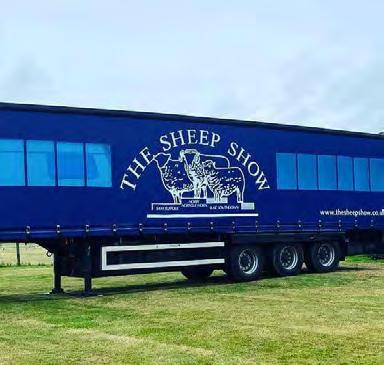
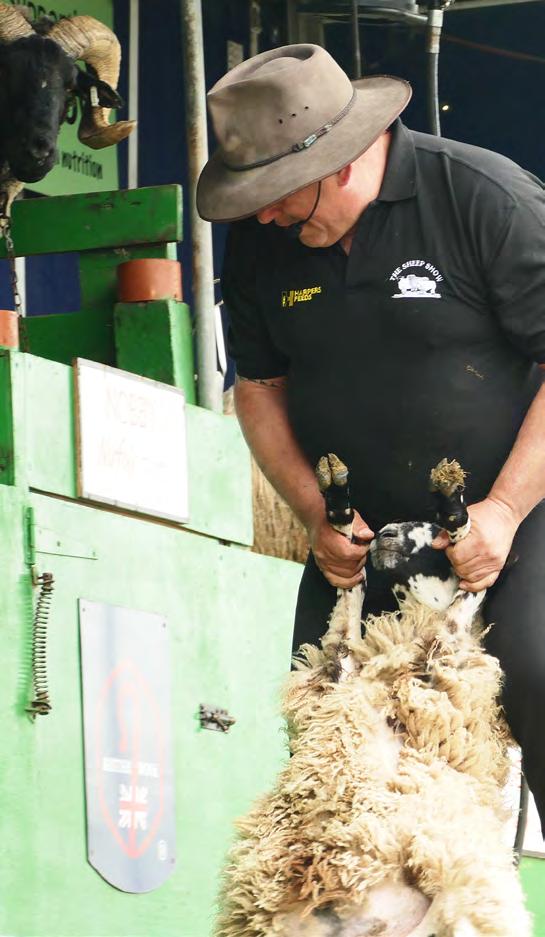
'We see what the individual sheep




starts to do when it walks around after the food and we work with that. We just watch for what they do naturally, we don’t teach them, and then we reward their behaviour with food.
For example, Dougal tries to head butt me – all I’m doing is harnessing his talent.' The sheep start to learn there is food available, and soon learn that repetitive behaviour gets rewarded. They just know they will get fed – and they love it!' The preparation for each show goes beyond the sheep themselves, however. 'Of course we keep an eye on their health, but we’re not looking for pristine sheep, so it's not about bathing and combing etc. A lot of preparation is involved in performing at a show. The lorries have to be ready. We need hay, water and feed. And then we need enough food and stuff for the humans – we can be away at shows for ten-day stretches. So everything, both the sheep and humans, needs to be ready.
Sheep have a reputation for being a bit ... stupid. But Trev's keen to dispel the myth. 'Sheep are not stupid! They are very intelligent. Look at what the team does around the back of the show – where the hard work really takes place. I’m just part of the act. The sheep know exactly what order they come up in, and when they hear their music they get up and get ready to go on the stand. It’s really cool to see the sheep adopt this behaviour in the show because they enjoy it. They even go to sleep up there.
'Really! I had to wake Sam up the other day at the Great Yorkshire Show. He was asleep on the stand! The sheep just won’t go on that stand if they don’t want to.
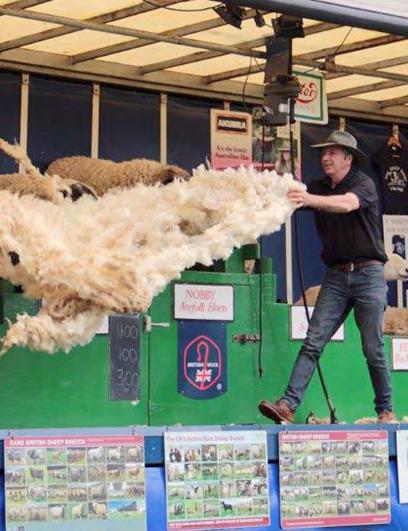
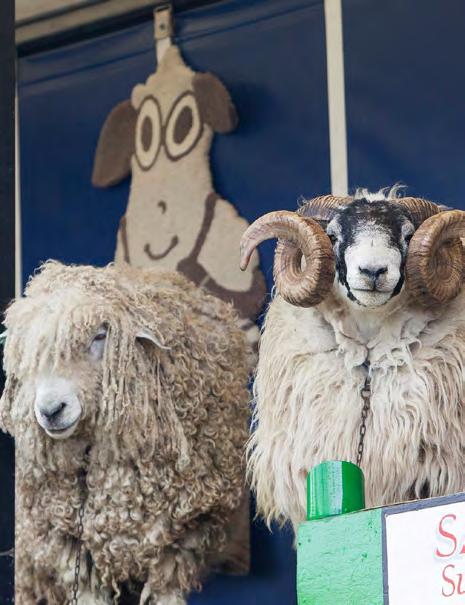
'And every time the sheep come up they surpass my expectations – they come up every time and do what they do.
'They have favourite music too. They love a bit of Taylor Swift! And they like Kenny Loggins' Footloose, too. As soon as we put
Taylor Swift on they all get up and start. And when Footloose comes up they know it’s dancing time. You can see them look at each other and say: “Here we go!” Even after so many shows, Trevor admits that it doesn’t always run perfectly smoothly: ‘I forgot to put a sheep in the hatch for shearing at one show. I was standing there waiting for it to come out and nothing was in there! Last week, one of my mates hid in the hatch, and instead of my expected sheep he jumped out at me! But that’s what happens with the travelling show community, we all look after each other.'
The show is brilliant entertainment, but it has a serious message hidden within the dancing sheep.
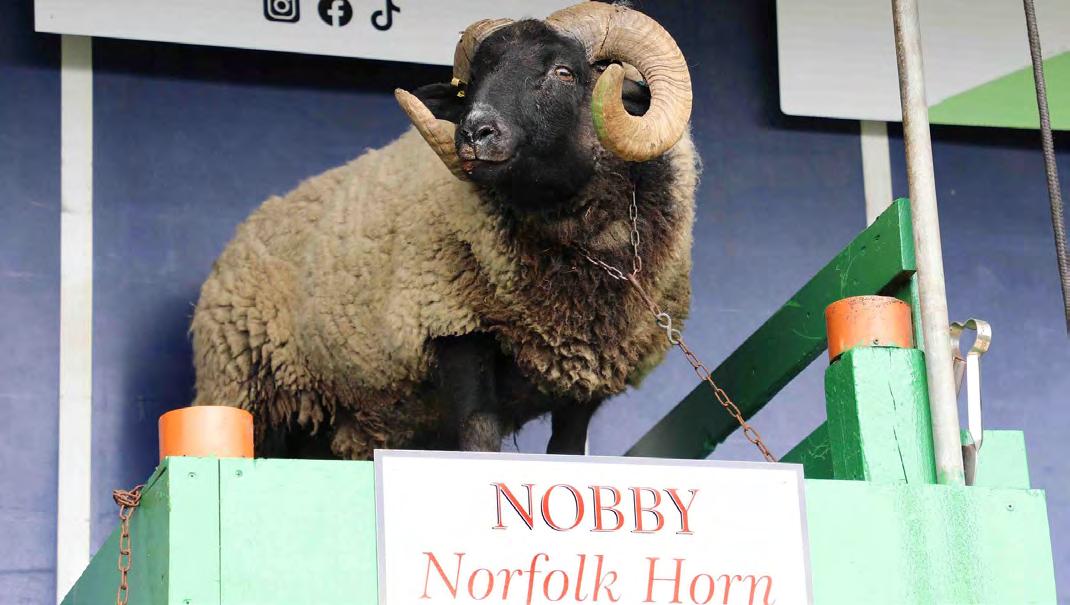
'I think people learn different things, depending where we are. Some people have never even seen a live sheep – I couldn't believe it when I did an inner city show in London. But even when we go to rural shows there are still people who don’t understand why we shear sheep, or that the fleece has such little financial worth.
‘We’re happy that people take just one or two facts from the show – perhaps why we have to shear the sheep for their welfare and for legal reasons. Wool is so good for the environment – endlessly renewable and truly biodegradable. And we all want to enjoy the countryside, which sheep help us maintain. It’s part of the make up, what the countryside is all about.'
‘When Footloose starts playing, they look at each other and say: “Here we go!"
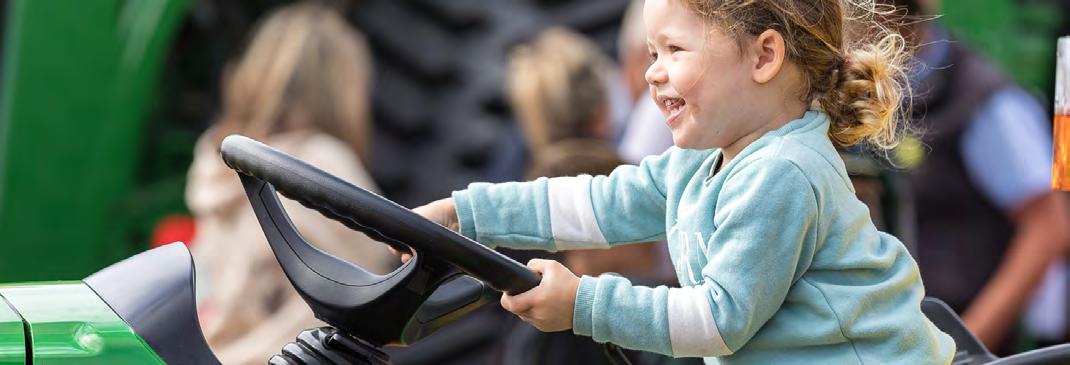
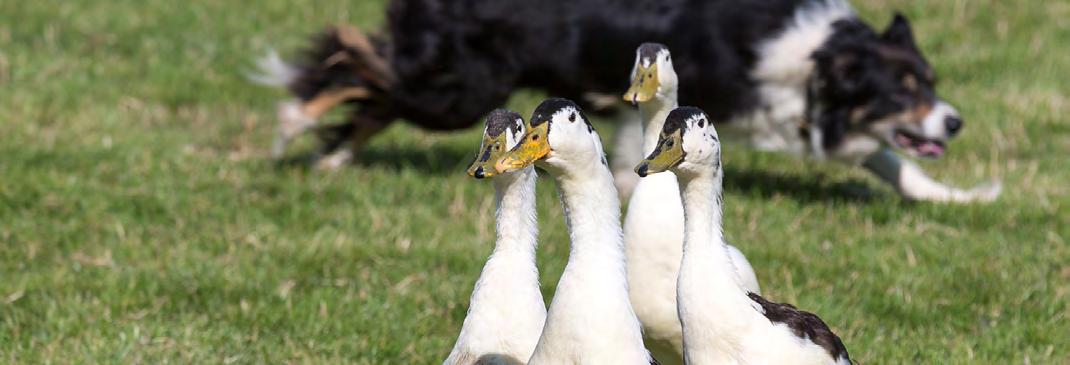

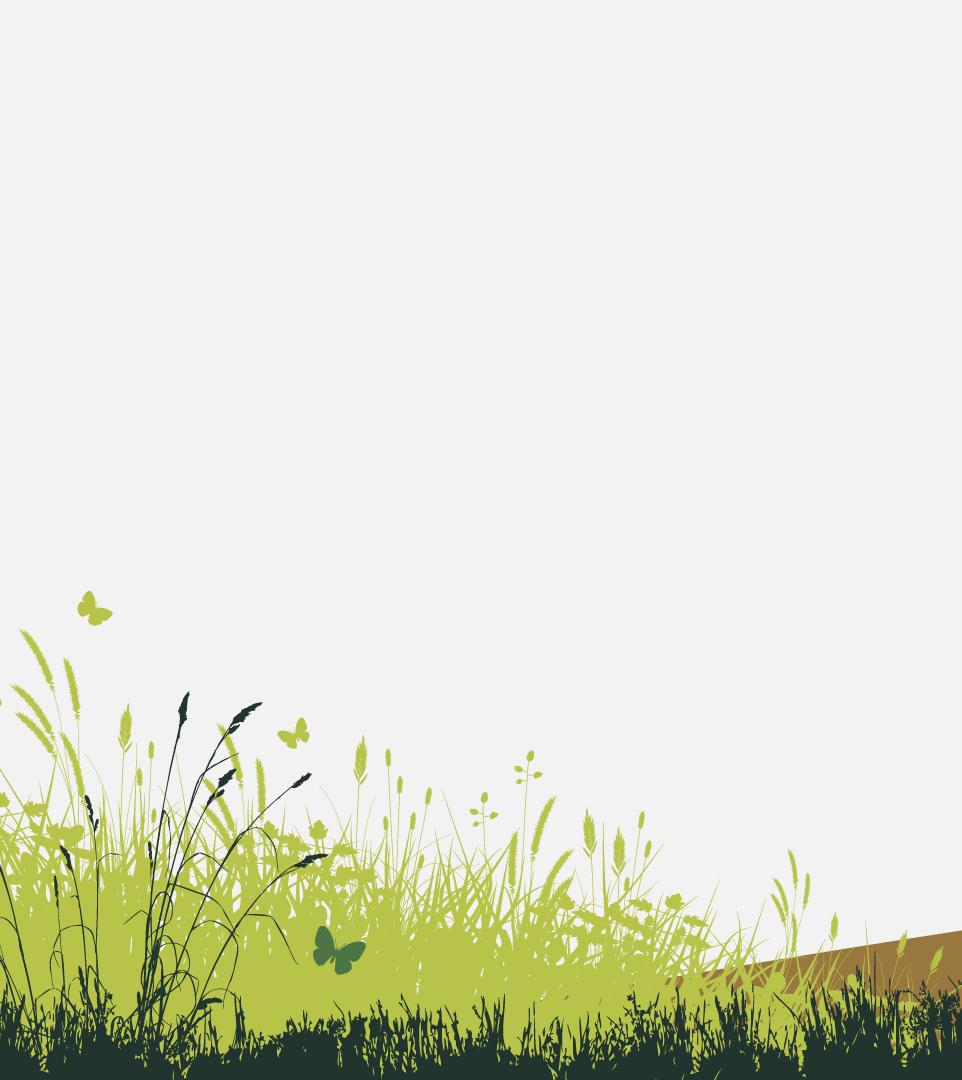
A whole new ring, with new attractions in it! See ponies put through their paces in the thrilling Mounted Pony Club Games and the Shetland Pony Racing – think traditional sports day on pocket rocket ponies!
Tradition comes alive as the colourful vintage tractor parade trundles a timeline of heritage through the main ring while the Steam Engine Section offers all the sights and smells of the past.
Your little ones will love a free ride on pedal tractors in the Fabulous Food & Farming Area – this hands-on area traces the journey of food from field to fork with fun and interactive elements.

Rural pursuits are at the heart of the show – we have been showing Dorset agriculture, countryside and rural life for more than a century.
During your visit you can enjoy close-up milking demos, watch sheep shearing displays, see gun dogs in action, enjoy the falconry and laugh at the ferret racing in the Countryside Ring.
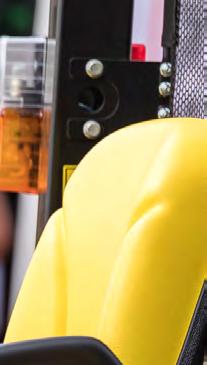
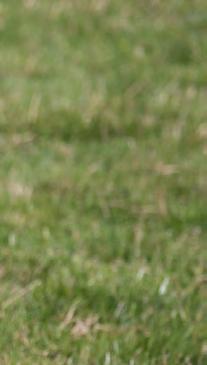
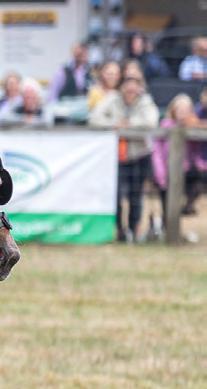


In the September edition of The BV magazine, young farmer and columnist Andrew Livingston took a nostalgic stroll through the Dorset County Showground
As a young child, the news that ‘Dorset County Show is this weekend!’ was always met with sadness. Never a reflection on the show, I hasten to add –it simply signalled the final weekend of the school summer holidays.
Every year, in the days leading up to the show, I would be dragged by my mother to Dorchester or Yeovil to buy new school uniform. “I don’t need to go back to school!” I would protest (thankfully my mother knew better than me).
Some of my earliest memories are of exploring the county showground, walking around in the shadow of my Dad – he was a feed rep for Mole Valley Farmers, and would always be working on the day.
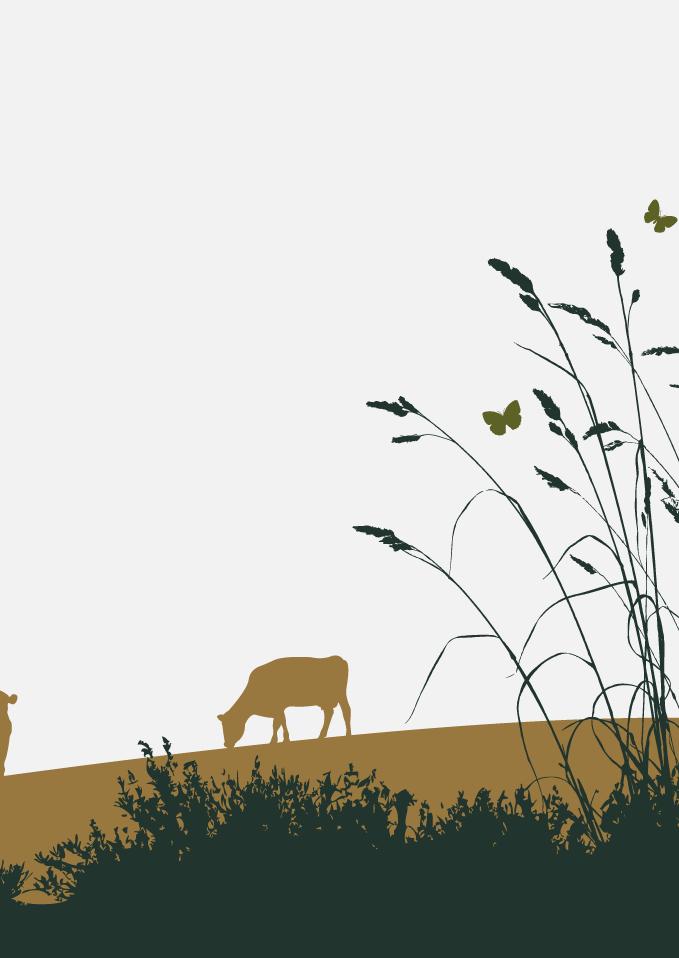
Well – he would refer to it as work, but what he called ‘networking’ just looked like listening to farmers moan to me. Why were they so miserable? They worked outdoors and they didn’t have the threat of going to school next week! How naïve I was. If I’d known then what I know now about the struggles of modern farming I would have suggested they start writing a column in The BV magazine to air their grievances. I certainly find it therapeutic these days!
For so many at the show, this is their one big day out of the year. Some are up every day at the crack of dawn milking, while others have been contracting every hour they can through the summer in a mad rush to earn every
penny possible. And for hours on end, my Dad would be at the Mole Valley stand, handing out cups of tea and chatting with these farmers.
(I’ll be honest, standing next to him –and eating all the biscuits, obviously – the conversations went straight over my head. Not because of the content; I simply couldn’t understand a word they said in their deep Dorset dialect.)
Eventually, I got older and was finally trusted to roam the site on my own. I would meet with friends and only return to my dad to reach into his pockets and steal another handful of change to spend on sweets or carnival games. When my dad’s pockets eventually emptied, the game became who could collect the most and best freebies from the stands. Simply listen to a vendor’s spiel for two minutes and scamper off with your thousandth pen of the day. What was my greatest freebie of all time you ask? I’m too polite to say.
But I will say that I got it from the NHS stand and, since about the age of 13, it’s had pride of place in every wallet I’ve ever owned.
But it has never been touched. It’s all changed now, of course. My days of going to the show and picking my Dad’s pocket are long gone – instead my own pockets get swiftly emptied by my two small children. Thinking about it … maybe I should have used my favourite Dorset County Show freebie at some point. It would have saved me a fortune on school uniforms in the future!

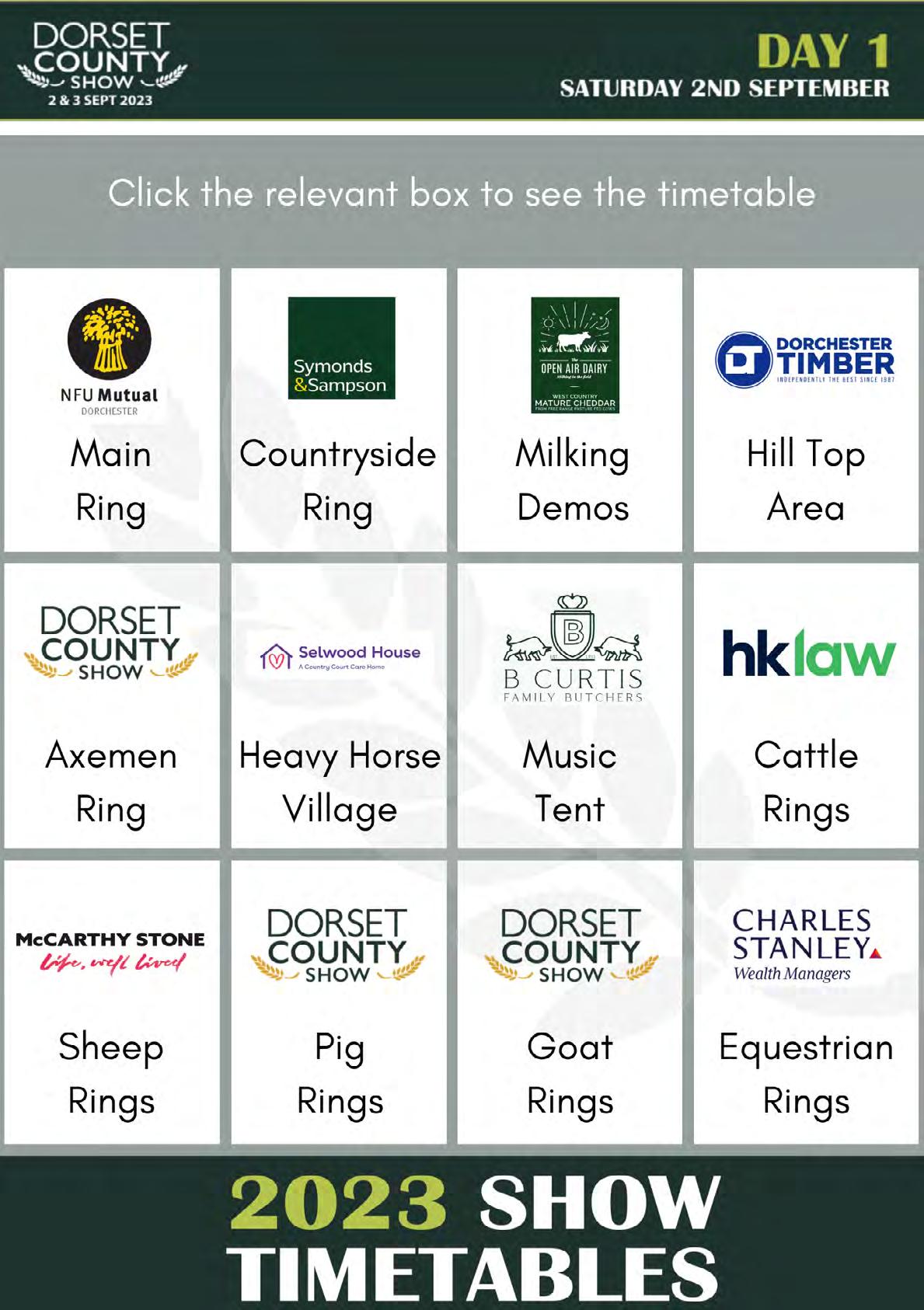
The whole team is proud of the fact that the Dorset County Show is a crucial part of the county’s farming year. We bring together people from all over the countryside, creating opportunities not just for networking and business, but also for celebration. We love that the show is a treasured event in so many calendars, as individuals and families come together, taking delight in the brilliant community that is Dorset.

 James Cox, Dorset County Show Organiser
James Cox, Dorset County Show Organiser
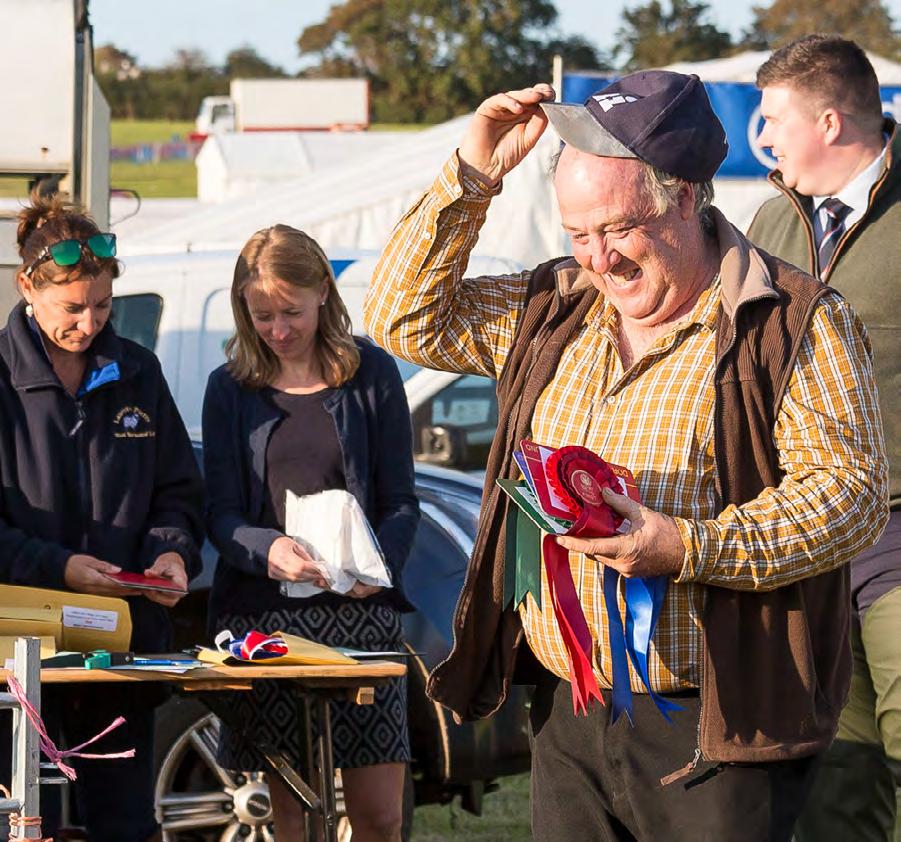
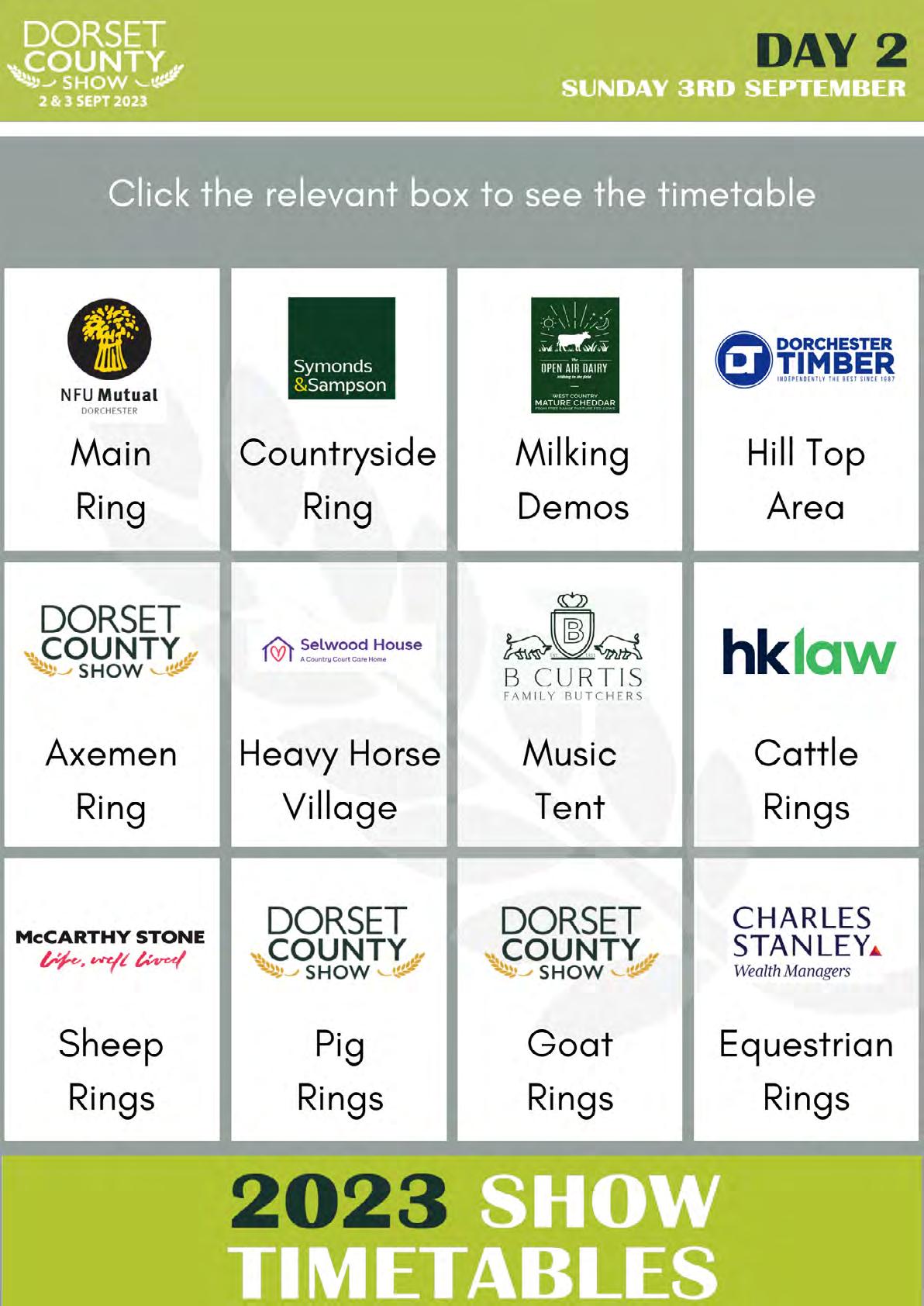
The Dorset County Show has been an essential part of the local calendar from my earliest memories, as a celebration of my culture and the end of bringing in the harvest on the farm. It has been my pleasure to have been involved as a volunteer for more than 40 years. Being the Chair of the show has been an honour – but not without its challenges! The COVID pandemic put the survival of all such events at huge risk, but it's at these times that we realise the important part we can play in the fabric of both our community and our local economy. I would like to take this opportunity to thank our supporters and many visitors – without you we simply wouldn’t be here. I am excited that when we open our gates we will not only be sharing our usual attractions and traditions but also introducing many more too.

 Nicki Ralph, Dorset County Show Chair
Nicki Ralph, Dorset County Show Chair
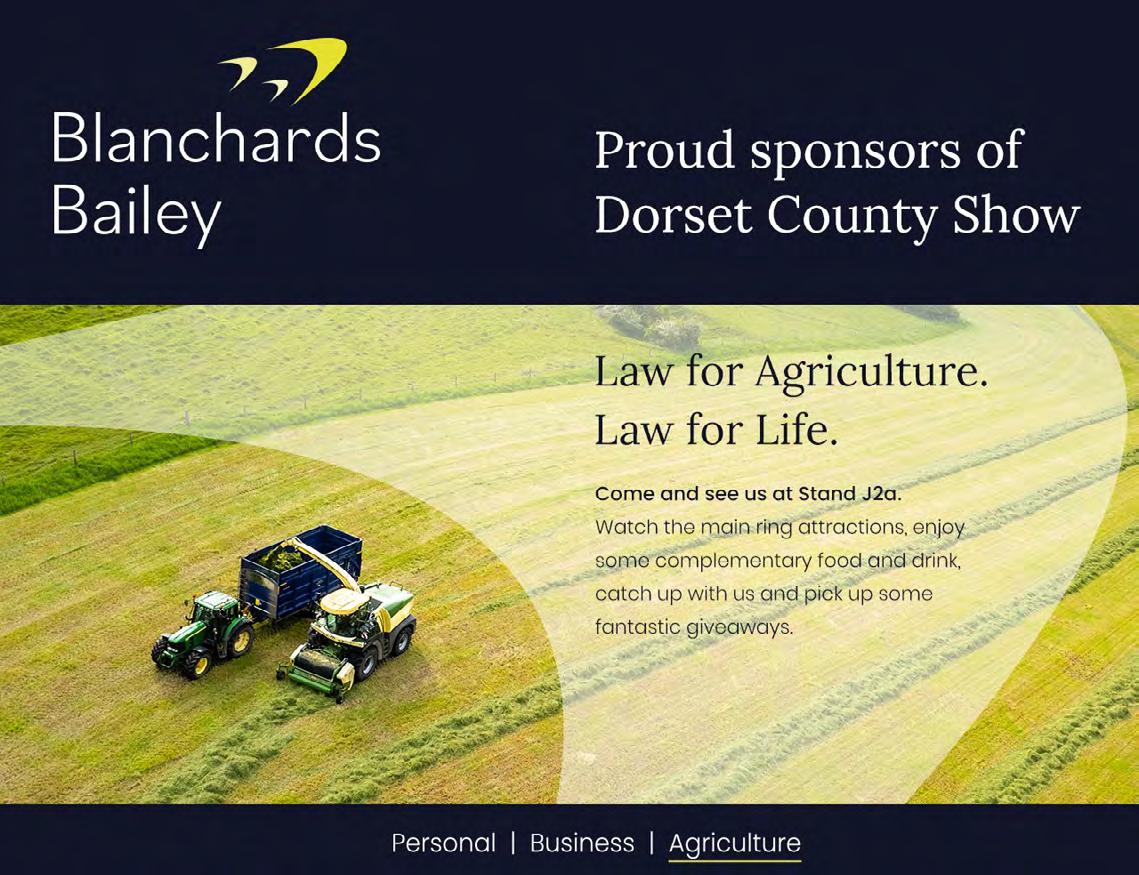
Shows are in our blood! They're such an important part of the community we support. Meeting with your customers is a really important part of any business and for us – an insurer that focuses entirely on the agricultural sector –rural shows are such a key part of that.
 Peter Beaumont, Managing Director, Cornish Mutual
Peter Beaumont, Managing Director, Cornish Mutual




We’re a complete network of legal professionals, delivering dedicated service and expert advice. Our legal experts can help you with:
> Family Law > Wills & Probate

> Conveyancing > Commercial Law
hklaw.uk
Craftmanship & quality for over 80 years. Traditional construction with impeccable design. High specification & premium finishes as standard. Discover the CG Fry & Son difference
The stunning rural and coastal county of Dorset is home to our developments of Poundbury in Dorchester with Chesil Reach and Nottington Park in the nearby coastal town of Weymouth with it’s wide, sandy bay. Each development offers a selection of new homes with energy efficiency in mind from the very start. Our homes are designed and fitted to a high specification throughout.
Visit one of our sales offices to see the CG Fry & Son difference for yourself.
Chesil Reach: 01305 771273
Nottington Park: 01305 470030
Poundbury: 01305 259600

Big rural events like agricultural shows are a vital ingredient in the farming calendar, bringing together people from across the rural community to celebrate food, farming and the countryside.
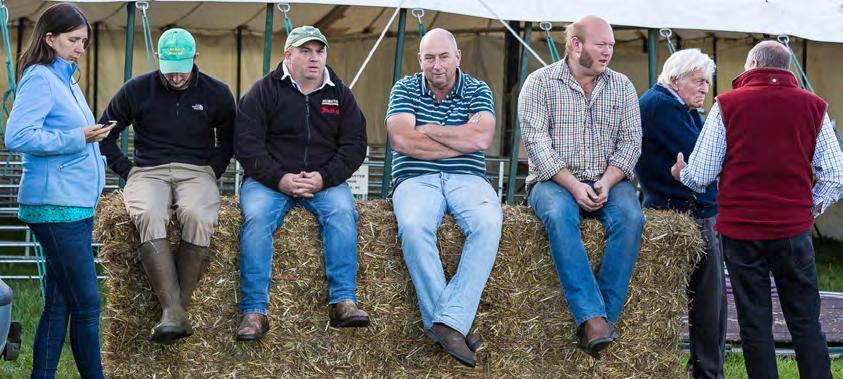

The Dorset County Show is a great opportunity to showcase the quality of Dorset food, drink and produce – as well as some of the finest livestock in the South West. All grown and reared by farmers who work to impeccably high standards.

The iconic Dorset landscape has been shaped by generations of farmers and growers who work the land and who also care for the farmed environment. The county show is a great place for farmers to meet the public and showcase what they do, and we are always delighted to see such quality animals on show in various classes.
The show is also a wonderful opportunity for the NFU to catch up with farmers; on our stand next to the main ring we will have refreshments aplenty and our team will be on hand to discuss all the work and campaigning that is happening on their behalf.

 Gemma Harvey, Dorset County Adviser, NFU
Gemma Harvey, Dorset County Adviser, NFU




Get set to cheer your favourite team as the Pony Club Mounted Games gallops into the Dorset County Showground for the first time
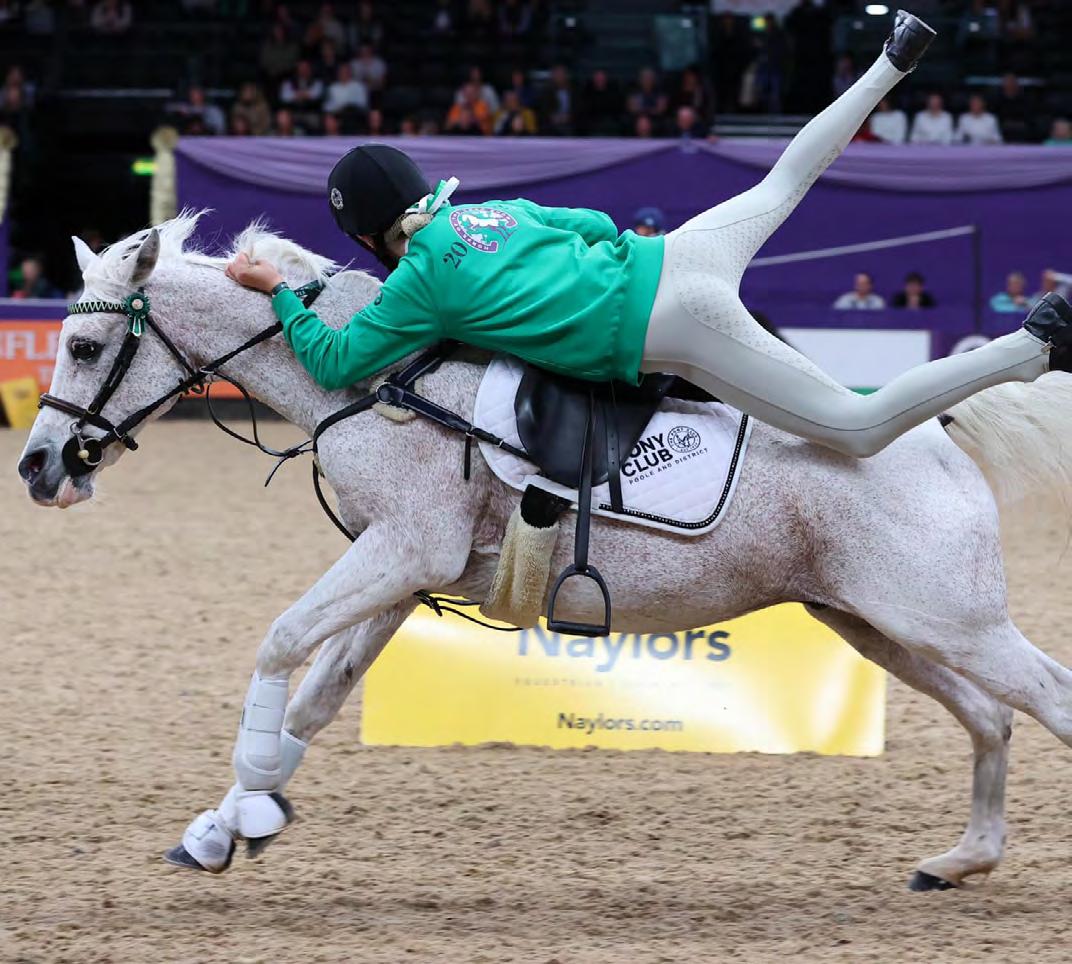
Think school sports day ... but on turbo-charged ponies! The thrilling Pony Club Mounted Games are another new attraction at this year’s Dorset County Show, and it all happens in the brand new Hill Top Ring. Featuring fearless young riders ranging in age from eight to 15, teams of four or five riders and their speedy ponies compete in a series of exciting relay races that involve a mix of turns, handover skills, vaulting and galloping. Riders must navigate their way through a variety of obstacle races, which can include bending poles, stepping stones and a stacking race. All classes rely on the skill, control and agility of the rider to complete without penalties – and of course
finish quicker than the other teams. The ponies must be calm, fast and able to turn on a sixpence – which makes great entertainment for spectators! Each team sports a different colour bib so you can cheer on your favourite.

Top tip – the last rider in each team wears a white headband, so be sure to look out for them crossing the finishing line!
Ian Mariner, Pony Club Mounted Games chairman, explains:
'These games are an adaptation of the traditional gymkhana, which tends to have solo competitors. Mounted Games focus on teamwork. It’s all about the three C’s – concentration, competitiveness and commitment. Plus, of course, a love of ponies.
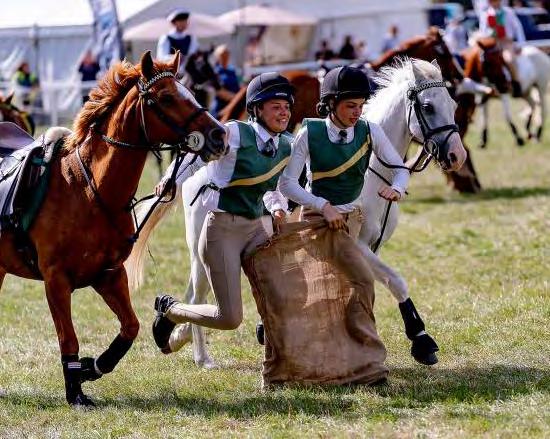
'And the ponies love it too. It's
just like teaching a dog, they come to understand the games and what is being asked of them. They get as excited as the riders!'
'The more mature ponies are definitely the best,' says Nicola Way, the Mounted Games Area Coordinator and trainer at the Poole & District Pony Club. 'They have years of experience to cope well with the sights and sounds of big events.'
'These exhilarating games are not just about having fun,' says Ian. 'They are also teaching these young horse riders valuable skills – improving accuracy, agility, concentration, speed, hand to eye co-ordination, team work and sportsmanship.'
Many of the Mounted Games riders go on to compete for their
The Pony Club, founded in 1929, is represented in 27 countries with a worldwide membership exceeding 110,000, making it the largest association of young riders in the world.

Mounted Games is one of nine disciplines
Pony Club members can learn, along with show jumping, dressage, endurance, eventing, polo, polocrosse, pony racing and tetrathlon.
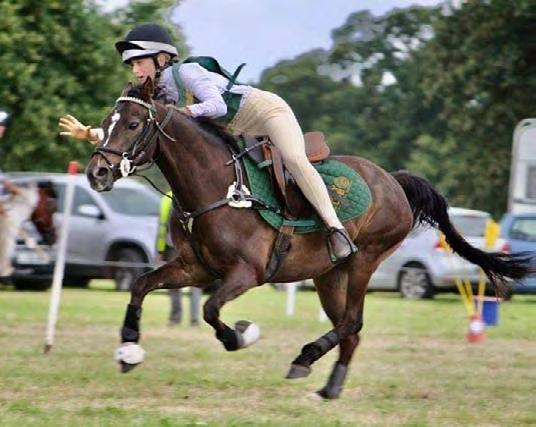
country, working their way up through local, regional, national and even international championships.
Part of the Pony Club agenda is to also teach young riders about animal welfare and care of their ponies. Many competitions now include an element of stable management as part of the judging process.
The four tiers of Mounted Games competitions culminate in the six top teams competing at The Horse of the Year Show for the coveted Prince Phillip Cup. Ian Mariner says: 'Many of these young riders you see today competing could end up as stars in the equestrian world. You could be cheering on a future Olympian!'


Meet Dorset’s soap star Kirsty Hearne – creator of a thriving cottage industry selling goats’ milk and the soaps she makes from it.
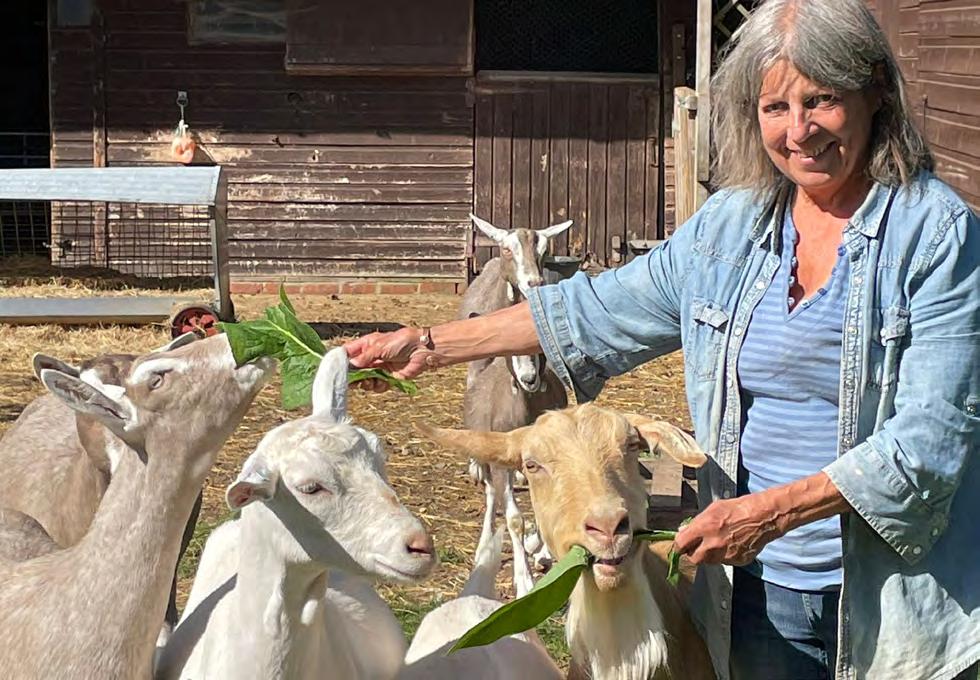 By Tracie Beardsley
By Tracie Beardsley
Most of us nip to the local shop when we run out of milk. Not Kirsty Hearne – she pops down the garden and milks one of her 13 goats. The result is ‘foamy and makes just the best coffee,’ she says. 'Raw goat’s milk is great for your gut and full of good bacteria.’
She has seen a huge increase in sales from her garden gate to both locals and holidaymakers. 'Last winter I had to limit people to five litres each, I just couldn’t
keep up with demand. Especially with so many people making their own kefir.' Her Maycottage milk – and her range of beautiful handmade soaps – began life accidently 14 years ago.
'I bought a goat and her daughter just for the milk for my family. I was up the pub, chatting to a friend about how we might make some extra money, as you do. I’d heard that you could make soap with goats’ milk and said I was going to have a go.
'So I started making some and going to craft fairs. I quickly discovered that I was quite creative about dressing the soaps and the stall. I use baskets, flowers and plants to create the cottage-like backdrop of where the soaps come from – it's a pretty idyllic lifestyle look.”
Kirsty then invested in an online shop. 'I now post soaps all over the UK –particularly to Scotland. I’ve no idea why the Scots love it so much!'
Her soaps are also sold in shops in Wimborne and Bournemouth. Now from a single goat, she has a herd and business is booming. 'I’d been a riding instructor for 30 years and thought this would give me something to do when it’s raining or through the winter. It was just supposed to be a sideline! But it took over and I actually gave up teaching.'
Her real life cottage home epitomises the genuine cottage industry. She milks all her ‘girls’ by hand – mornings begin as early as 4am, especially if Kirsty's at a rural show or market that day.
Her goats are all registered British Guernseys and Toggenburgs. They enjoy idyllic free ranging with the chickens, and at night they sleep in stables at the bottom of the garden. They’re given no antibiotics, chemical wormers or vaccinations. 'I only use homeopathic methods,' says Kirsty, who’s also trained in Reiki for animals. It seems to be working – she hasn’t needed a vet for three years.
'My girls have very different characters. There’s a fierce hierarchy and Honeybee, 13 years old and still going strong, is the matriarch. Chilli, my latest addition, is

very pesky. She follows me everywhere and is so nosy.'
But don’t goats have a reputation for being a tad petulant? Kirsty says: 'You can’t make goats do anything they don’t want to. Patience is essential. You need softness, to ask them nicely. If you pull or drag them, they simply dig in their heels and win!'
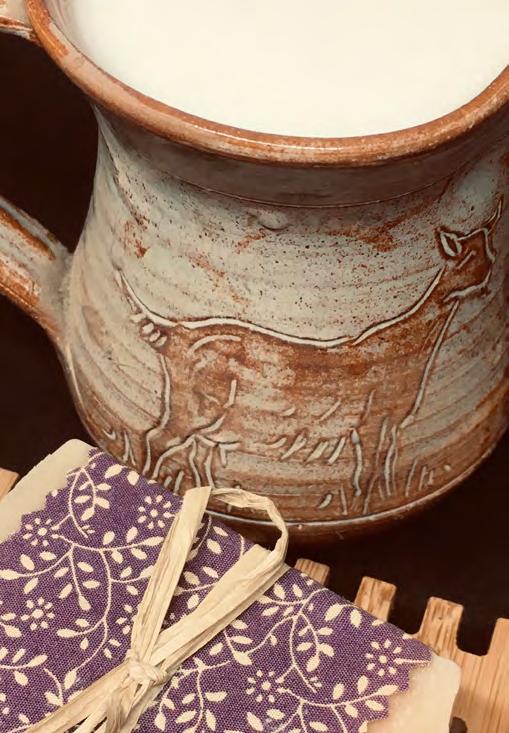
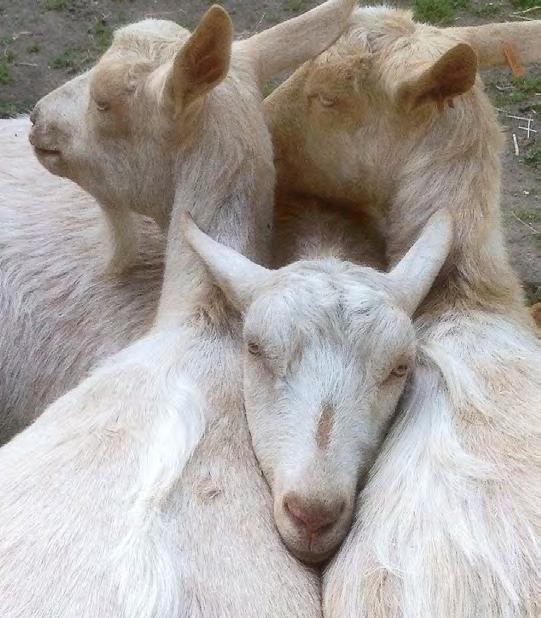
Every Maycottage soap contains 25 per cent goats’ milk along with a gorgeous variety of natural scents, all concocted by Kirsty. Her neroli orange blossom is proving a favourite this year. She believes goats’ milk soap is so popular because it’s extremely kind to skin conditions. 'Eczema, psoriasis, sensitive skin – my soap is incredibly gentle and moisturising. It’s the same pH as your skin and it also contains 30 per cent olive oil which is anti-inflammatory. Repeat customers tell me that it makes such a difference to their skin issues. It's not a cure, obviously, but it helps keep
the skin in better condition. And my soap doesn’t have all the chemicals that commercial soaps contain.’
Kirsty makes all the soaps at her kitchen table, packaging them in pretty fabric tied with rustic twine. Using the traditional cold-pressed method, soaps are poured into loaf moulds and rested for 48 hours before being carefully cut up and then left in the spare room to cure for four weeks. 'It used to be my son’s bedroom, so I was glad when he moved out!' says Kirsty. 'It can get lonely working from your kitchen table. My other half, Keith, works all day so I can get to 6pm and have only spoken to goats or my dogs all day!'
• Find Maycottage Soaps on stand CA1
• maycottagegoatsmilksoaps.co.uk


